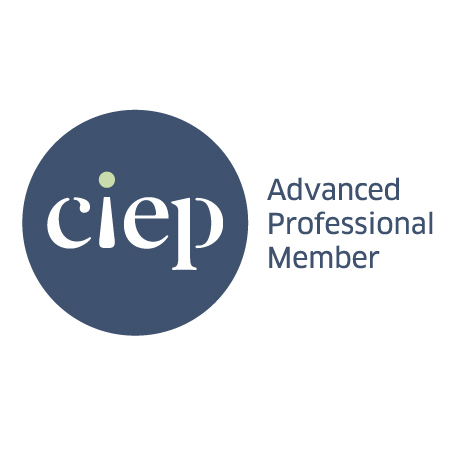What does being an Advanced Professional Member of the CIEP mean?
Posted on 15th December 2016
In the traditional publishing world, I believe many people are aware of the Chartered Institute of Editing and Proofreading (the CIEP) and what membership means/involves, but as many of my clients are from the corporate world or are independent authors or academics, I thought I would write this blog post about it, especially after my recent social media frenzy about how pleased I am to have made it to the highest membership level: Advanced Professional Member (APM).

My experience as a proofreader and copy-editor
The CIEP's email to me when I was told my application had been successful said this: "As an Advanced Professional Member of the Society, you are held to demonstrate a high level of professional competence and substantial experience." To get APM status, one has to prove they've done at least 1,500 hours of proofreading or copy-editing work (as opposed to project management and admin). My in-house proofreading and editing experience from my days working for a market intelligence company and then a magazine publishing company formed a solid basis for this, but the bulk of my experience has been since I set Kateproof up in 2010. Since then, I have done proofreading, copy-editing and editing work for numerous clients, including FTSE 100 companies, international businesses, publishing houses, independent authors, academics and students.
Like every employee or business owner, there have been some interesting learning points along the way but I'd like to think that this has all combined to make me as confident and, dare I say, capable as I am.
Editing and proofreading training and CPD
When submitting my application, I had to show evidence of training, including recent Continued Professional Development (CPD), to successfully upgrade to APM level. Back in 2007/08 when I knew I wanted to go freelance but wanted to get more training, I did the Publishing Training Centre's distance proofreading course. Since then, I have done plenty of other proofreading and editing training, some of it more formal than others. This has included copy-editing training, a refresher in grammar, learning to use macros and also writing and editing web copy. I set up local skill swap sessions with proofreaders and editors who lived nearby and we swapped ideas and best practice approaches. Even though I no longer live near this fabulous group of editors, I am a member of the CIEP Cloud Club and also email and speak to other members on a regular basis, helping me to keep current and informed.
External verification of my skills
Perhaps one of the key elements for me when it came to the upgrade process was that I had to supply details of at least two referees. In the current era of internet companies and the fact many people can claim to be a proofreader or editor without experience or training, it is nice to have external verification and validation of my skills and abilities. When I got the upgrade, it felt like a public pat on the back, not dissimilar to a bonus or a promotion, I guess, but such things are not so obvious for a freelancer. Although I do have testimonials (when I remember to ask clients for them!), it is nice to know that in a more formal setting, these referees were happy to vouch for my service.
What does membership of the Chartered Institute of Editing and Proofreading mean to my clients?
Touch wood, I've never had an issue with a client, but adhering to the CIEP's code of practice gives all my clients access to an external, independent arbitration process. To maintain my APM status, not to mention for my own personal desire to be the best editor/proofread I can be, I will keep on top of changes in the industry, do regular CPD, and ensure I offer a reliable, timely and professional service.
I have written this blog to try and give readers a bit more information about my background and experience, but it is in no way my intention to suggest that someone who isn't an Advanced Professional Member of the CIEP can't be just as professional, reliable and conscientious when it comes to offering an editing and proofreading service.
Edited in March 2020 after the Society for Editors and Proofreaders became the Chartered Institute of Editing and Proofreading. My APM status is unaffected.
Written by Kate Haigh.
